- Home
- Helen Dunmore
Betrayal Page 21
Betrayal Read online
Page 21
‘As soon as Kolya comes home, I’ll tell him about going to Galya’s,’ says Anna. She is very pale but she appears calm. ‘The books, Andrei. We must go through them.’
‘What?’
‘And my father’s papers as well, just in case there’s anything there we overlooked.’
‘I thought we took everything down to the dacha.’
‘There are always a few things that get missed.’
But not by them, thinks Andrei.
‘You know more about the books than I do,’ he says. ‘You get on with that. I’ll cut up the chicken and put it in the pot.’
She looks at him, startled. ‘But do you know how to?’
‘Of course I do, what do you take me for? I’ve watched you any number of times. Besides, think of all the dissection I did in training. Don’t bother with my text books, though, Anna, there’s nothing in them.’
‘Remember to take out the gizzards. And then cover the meat with water, and add pepper and one of those bunches of herbs I dried last year. It won’t be long before we can pick fresh ones again.’
He laughs.
‘What are you laughing for? I don’t know what they taught you in dissection.’
‘Quite enough to deal with an old boiling fowl. I could always begin a second career as a butcher.’
She jumps up, puts her arms around his neck, presses herself against him so close that he can feel the new, awkward swell of her belly. He wraps his own arms around her, hugging her hard. Too hard, he knows from her intake of breath, but he can’t bear to let go of her.
By the time Kolya gets home from Lev’s, so late that he’s almost genuinely sorry, the living room is full of the rich smell of chicken soup. Books and papers cover the floor.
‘Whatever are you doing, Anna? You say my room’s a mess, but this is like a war zone.’
‘Kolya, come and sit down, we need to talk to you …’
15
‘But you must be careful cycling now, in your condition,’ says Galya, handing a glass of tea to Anna. ‘Your sense of balance won’t be as good. I was delighted when I got your letter about the baby. Your mother would have been so happy.’
‘I know.’
‘It’s always been my dream to stay here all winter. I’m tired of the city,’ says Galya.
‘But isn’t it very lonely?’
‘No. There are a few of us old full-time dacha-dwellers, you know. We look after each other. At least, I hope we do! This is my first winter, so I’ll find out. There’ll be snow soon. My barometer’s dropped right down.’
‘It won’t snow today, surely?’
‘I don’t think so, but it’s on its way. Drink your tea, and then you must get going. Don’t worry about Kolya. He’ll be fine with me. He’s got his school books with him, hasn’t he?’
‘Yes,’ says Anna, smiling slightly as she recalls Kolya’s indignant disbelief when she’d told him that even at times like these, his exams still mattered.
‘I can help him with science and maths, although I daresay they do everything differently these days. It’ll be good to have a young man about the place, to chop the wood and keep the stove going. He seems like a worker.’ Kolya’s outside, digging over Galya’s potato patch so that the frosts can break up the earth. He’d volunteered, to Anna’s surprise. ‘He’ll earn his keep, that boy,’ says Galya with a smile.
‘I have to tell you, he doesn’t do that much at home.’
‘He will here,’ says Galya with easy certainty. ‘You know what they’re like.’ Galya had only one son, who died in the war. She and her husband divorced long ago. ‘I shall enjoy the company.’
‘I hope it won’t be for too long. As soon as all this is over –’
‘You don’t need to explain, Anna. Anyway, it’s best if you don’t. Kolya’s the son of one of my dearest friends, that’s all I need to know, and he’s going to stay here until his health improves. Country air, plenty of exercise … it’ll do him the world of good. And naturally you brought him to me, given that I’m a doctor and well qualified to keep a close eye on him.’
‘I don’t know how to thank you, Galya.’
The older woman bats this away with her hand. ‘Look after yourself. I’ll make sure Kolya’s all right. It might be a bit dull for him, but he can always do some work.’ She laughs. ‘He’ll pass all his exams with top marks.’
‘That’s not really Kolya. Oh dear, I hope he doesn’t miss the piano too much.’
‘It wasn’t you either, if I remember. You were always drawing when you were meant to be studying.’
‘I used to dread my mother reading my reports.’
‘My dear child, if your mother could see the way you’re living your life, she’d be so proud of you.’
Anna wipes her eyes with the back of her hand. ‘Anything makes me cry these days,’ she says apologetically.
‘It’s because you’re pregnant. I was the same. Especially anything sad to do with children.’
‘I must go. I need to get back before dark.’
On her way out, Anna slips an envelope on to the table. Galya isn’t well off, with only her pension, and Kolya eats so much. Now to say goodbye to him. She straightens her shoulders and lifts her head, ready to smile.
It won’t be dark for a while yet. She has just enough time to go to their own dacha, and bury the diaries and sketchbooks she’s brought with her. Neither Andrei nor Kolya knows about this. She sent Kolya out to the kiosk to buy some smoked sausage, asked Andrei to take down the rubbish, and then quickly dismantled the secret hiding place, cramming everything into her two saddlebags. She had nothing to wrap the papers in this time, but she remembered that there was an oilcloth on the table in the dacha. It would be a terrible waste, but it would do.
The dacha is dark and quiet. It looks as if it has taken up its own winter life, which has nothing to do with her. There is no feeling of welcome. All the leaves have fallen and the ground is covered with them, some rotting and some still fresh. There are a few leeks left in the vegetable plot, and she pulls them up. She will dig down here, and then replant them.
Anna fetches her spade. Slowly and carefully, she begins to dig, piling the earth beside the hole. It needs to be deep. The earth is heavy with autumn rain, and the top layer is already frosted. The spade slices down into it, but turning the earth is hard. There’s a gust of wind and a few last birch leaves scatter down, bright as coins. Surely the hole is deep enough now. She spreads out the oilcloth and opens her saddlebags. There are her father’s diaries. The ‘Marina notebook’ is on top, and then there are Anna’s sketchbooks and all the loose drawings. She’ll have to fold the drawings. Later on, if there’s ever a right time to recover them, she can get rid of the creases somehow.
Place them all right in the middle of the oilcloth. Fold it over once, and then the other way. Tuck the corners right over, and fold again.
When she has made her parcel, Anna gets out a ball of string and ties the bundle securely, wrapping the string over and over so that it won’t come apart. It still doesn’t seem enough. The rain will seep in, and then the frost. What else can she do to protect everything?
She gets up, goes inside the dacha and starts searching, but there is so little there. She opens cupboards and peers into drawers. Nothing that’s any good.
She’ll try the shed where they keep their tools. An axe, a fork, a hoe, a rake, several buckets, rows of plant pots. Labels. And there, thrust into the darkest corner behind the ladder, she sees a pile of old sacks.
Perhaps she could hide the oilcloth parcel under the sacks. It would be dry there. Surely no one will go through the contents of the shed.
Anna bends down and lifts a sack. She gives a cry, and stumbles back, hitting her head on the rake that hangs from the wall. Pin-like squeaks come from a nest in the sacking. Ratlings, naked and squirming. My God, the mother will be somewhere about. A rat with young will fly at your throat. Anna backs towards the light of the shed’s doorway. As soon as she’s out she slam
s the door and bolts it. There’s no using the sacks, then. She’ll have to clear out the nest and the adult rats as soon as possible. She can borrow a dog from the farm. But not now. She knows she ought to kill the ratlings but can’t bring herself to do it.
The oilcloth will have to be enough. Anna crouches and reaches down into the hole, gripping the parcel of notebooks, sketchbooks and drawings. She doesn’t want to throw them down there. She ought to have fetched one of the sacks to kneel on. Never mind, she can brush the dirt off. Anna kneels. The thickening of her body keeps taking her by surprise. She feels clumsy and unlike herself. Never mind. There, the parcel lies flat at the bottom of the hole. She presses it down as if putting it to bed.
Now to cover it. And quick, it’s getting late. She keeps glancing behind her, although there’s no one there. She can’t understand why she feels so frightened. She stands, and picks up her spade. The handle is cold and heavy, and she is very tired. Hurriedly, she shovels the earth back into the hole, stamps it down and spreads the last few spadefuls carefully over the surrounding area so that the site of the hole is concealed. Smooth it all down a bit. Good. And now for the leeks.
One by one, she eases them back into the earth, and then presses down the soil around them. It still looks darker and fresher than the surrounding plot. She stares down at it for a moment, dissatisfied, then goes across to the little grove of young lilac and birch, and gathers up an armful of fallen leaves. Returning, she scatters leaves all over the disturbed soil. There, that looks more natural. If Galya’s right, and there’s snow in the next day or so, everything will be hidden.
Her father’s words are buried, just as he was buried. If they rot too, there’ll be nothing. But I can’t think of that now. I must get home.
Suddenly she remembers. It was like this the last time she came here alone and frightened. The dacha was deserted. She kept glancing round then too, because the Germans were coming. She knew how close they were but it didn’t stop her. She went on heaving onions and potatoes out of the earth, so that she could take them back to the city. What she couldn’t take with her she smashed into the soil, so that the Germans would never be nourished by them.
It had been a risk, but it had paid off.
She shakes her head to rid it of the memory. Trying not to look as if she’s in a hurry, she puts away the spade – propping it just inside the door of the dacha, because she doesn’t want to open that shed again – and buckles her saddlebags back on to her bike. Galya’s right, it’s much colder. The sky has changed. It is heavy and yellow with a weight of coming snow. Anna pauses, staring intently at the clouds, judging the wind, which has suddenly got up and is chasing the last leaves. It’s all right, she’ll get home before the snow falls. She wheels her bike down the path, and looks back one last time. A plot of earth, covered in leaves. She has scuffed out all her footprints. The leeks look as if they’ve been growing there all the time, forgotten, their leaves already dark with frost.
As soon as she reaches the track she gets on her bike and starts to pedal away, much faster than she should, over the bumpy ground. She looks neither to right nor left, but straight ahead. She doesn’t look back.
16
You can get used to anything. A new pattern emerges, in which Anna gets up a little later, because there’s no Kolya to be chivvied out of bed and off to school. Andrei rises at the same time, and goes through the routine of washing, dressing, drinking tea and eating porridge. He doesn’t shave. He hasn’t shaved for three days now. Anna detests the stubble but she says nothing. Andrei is working on a letter that sets out his position, explains in detail his handling of Gorya Volkov’s case (approved and agreed by Admin at every stage), and demands reinstatement. He refuses to call this letter an appeal. No specific accusation has been made against him. It’s a professional matter, that’s all. A misunderstanding which will be cleared up once the facts are known.
He’s at his desk before she leaves for work, with his pen and a pile of books and papers beside him. She kisses him and he looks up, distracted for a moment.
They’ve stopped him from being a doctor. With one phone call they have ripped through the fabric of Andrei’s life. Her heart clenches with pity and fury. Andrei, who walked to the hospital along freezing, deserted streets all through the siege, to give whatever medical help could be given. He never flinched. He improvised, made do, eked out the pitiful stock of drugs. He believed it was his duty to be there, even when all he could do was unwind a baby’s wrappings, and tell the mother to chafe its hands and feet and put it inside her clothes, against her bare skin, so it could share her warmth. And lie down, conserve your energy, drink water, give your milk a chance.
He was there when a father with wild, staring eyes rushed into the clinic. ‘It’s my little girl. The bakery wall collapsed when we were going for our rations. Her leg’s trapped, you’ve got to come.’ He knew what it was like to kneel in the snow where the child’s blood was already congealing as it spilled, and help to lift the mess of shattered brick and mortar off her. She survived, that child.
It was Andrei they were attacking, who’d supervised the boiling of pine needles to make a remedy against scurvy, who’d operated by candlelight on blast injuries, who’d directed infants who had a chance of survival to the feeding stations. They were like one body then, those who were still alive and on their feet. Fourth-year med students, junior doctors, professors, they were equals as they battled through the lines of patients. People came to hospital not so much in hope of a cure, as not to die alone. The corridors were full of the dead. Doctors, nurses, cleaners, physiotherapists, radiographers all struggled to keep the stoves alive. It was no time for hierarchies and protocol.
He’d thought the world would change after all that, just a little. People would remember what they’d suffered and how they’d got through it. In the years of the Terror their human feelings had been suffocated by fear and distrust, but those feelings were still there, alive, like fire sleeping under a crust of earth. People had helped one another during the siege; not all the time, perhaps, but even in the most extreme circumstances they hadn’t just survived as animals do. Some, maybe – the cannibals whose eyes had lost all humanity, sunk in the gloss of their flesh. But they were a small number. They were real, but they were not the true story. He’d seen people make sacrifices for one another that he would never forget. A cube of bread or a pannikin with soup in it, taken home from the canteen instead of swallowed. The offer of a share of the wood from a chopped-up bookcase. These things may not sound much now, but in those days they were life instead of death. People wouldn’t forget. Things will be better, Anna, he said, at the worst times. When all this is over they’re bound to be a little better.
Things will be better, Anna, they’re bound to be … She remembers his words and the iron smell of cold and death in their apartment. Did she believe him then? Probably not. She was less optimistic, perhaps.
There hasn’t been a second phone call. No letter; no further communication from the hospital. They have dropped Andrei into silence, she thinks, to see if he breaks it and what he says. None of his other colleagues has been in touch. Well, that was what happened. Lena took the risk but you couldn’t expect it. Anna remembers what that’s like. People didn’t come to see her father, except when they were sent to try to persuade him of the error of his ways. Even then they were sweating. Her father was lucky. They stopped him from publishing, they denigrated his writing and called him in for reprimand, but he was never arrested. Looking back, she finds it almost incredible that he could have survived in those times, when so many were destroyed.
Yes, he could be called lucky, but all the same it hollowed him out, like drops of water falling repeatedly on his heart. Shame, isolation, abandonment. She never used those words then. She became impatient with him, and sometimes even angry. Why couldn’t he make the best of it? She hadn’t understood her father; not really. He turned inward on himself, and although she never said a word she criticized h
im in her heart.
She’d been a good daughter. She’d gone to work, she’d taken care of Kolya, she’d cleaned the apartment, shopped and prepared the food. She’d grown their vegetables and fruit at the dacha. All these things had been done and she’d found pleasure in them. As far as she can remember she never complained to her father. He had his tea, his books, his papers, his thoughts.
But it wasn’t enough. She hadn’t wanted to enter his inner world, because she was afraid of it, as a child is afraid of a gloomy forest. She’d left him to wander in it alone.
When she was little she used to believe that the dead could see all the thoughts of the living. She doesn’t believe it now. She has to fight not to see the clenched, frozen flesh of her father, as hard as a board.
Yesterday Andrei said, ‘I’ve had enough of this. How long do they think I’m going to sit here like an idiot? I’m going in. If there’s an investigation going on, I should be part of it. I shall demand to see Ivanov, or Kalinin.’
The room was full of reflected snow light. Full winter had come, quite early. She’d always loved the clarity such light gave to everything. You noticed one leaf hanging from a frozen shrub, or the shape of a child’s lips as he threw his snowball and laughed. Stubble sprouted from Andrei’s chin. It was darker than the hair on his head.
‘Don’t,’ she said, in her softest voice. ‘Don’t do that, my darling.’
He shrugged impatiently and flung away from her, towards the window. For a long time he remained standing, looking at the buildings opposite and the floating mass of white roofs that stretched away into the distance. Soon the children would be talking about Father Frost, Anna thought. How quickly the year went round. But all that seemed to be happening in another world, to which she no longer had access.
‘You don’t need to worry,’ he said at last. ‘I shan’t do anything.’
She looked at his back, and her throat ached. It won’t go on for ever, she wanted to say. They’ll come to their senses. You’re one of their best doctors, everyone knows that. But she knew it would do no good to say these things aloud. It wouldn’t lift his burden; it would just be pretending that the burden was lighter than it was.

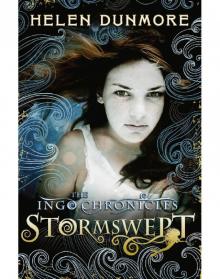 The Ingo Chronicles: Stormswept
The Ingo Chronicles: Stormswept The Deep
The Deep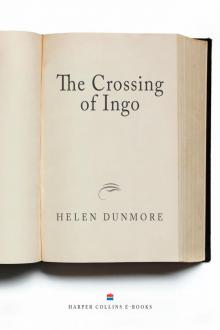 The Crossing of Ingo
The Crossing of Ingo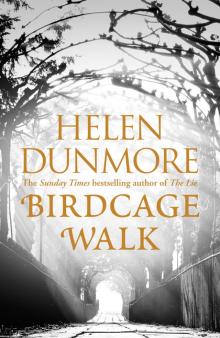 Birdcage Walk
Birdcage Walk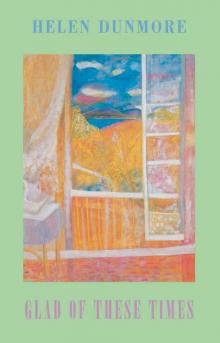 Glad of These Times
Glad of These Times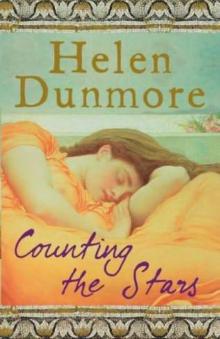 Counting the Stars
Counting the Stars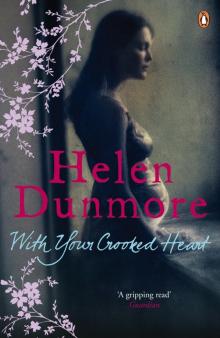 With Your Crooked Heart
With Your Crooked Heart Burning Bright
Burning Bright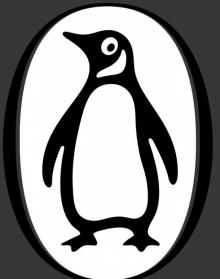 House of Orphans
House of Orphans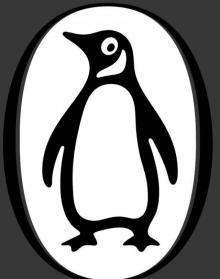 Mourning Ruby
Mourning Ruby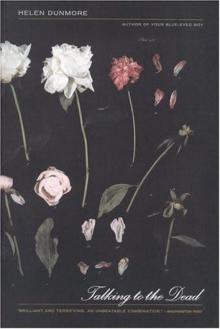 Talking to the Dead
Talking to the Dead Exposure
Exposure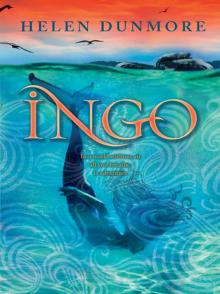 Ingo
Ingo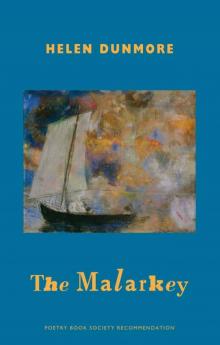 The Malarkey
The Malarkey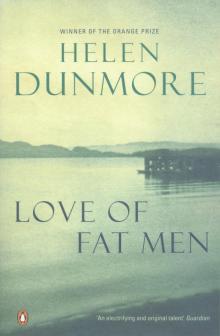 Love of Fat Men
Love of Fat Men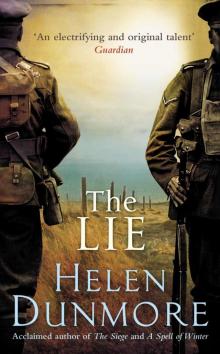 The Lie
The Lie The Siege
The Siege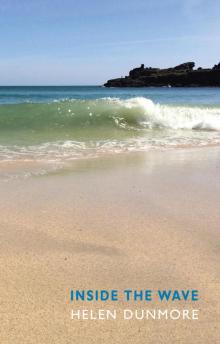 Inside the Wave
Inside the Wave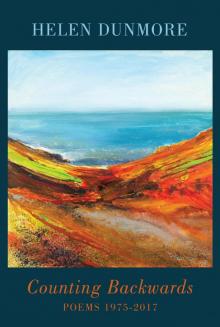 Counting Backwards
Counting Backwards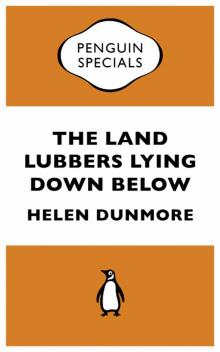 The Land Lubbers Lying Down Below (Penguin Specials)
The Land Lubbers Lying Down Below (Penguin Specials)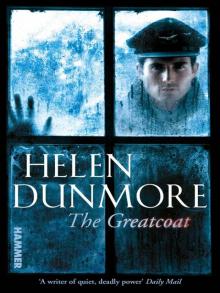 The Greatcoat
The Greatcoat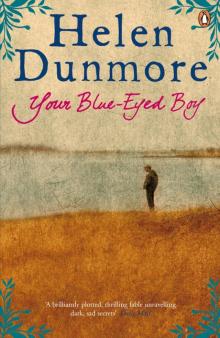 Your Blue Eyed Boy
Your Blue Eyed Boy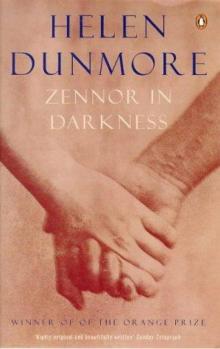 Zennor in Darkness
Zennor in Darkness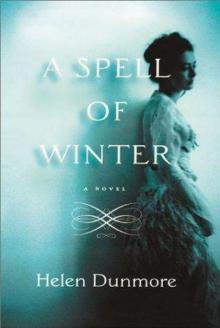 Spell of Winter
Spell of Winter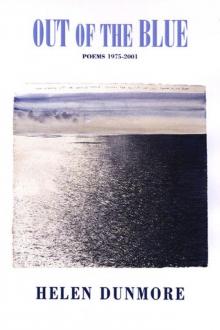 Out of the Blue: Poems 1975-2001
Out of the Blue: Poems 1975-2001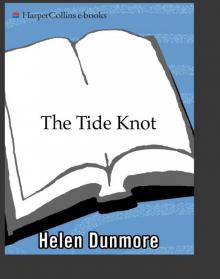 Tide Knot
Tide Knot The Betrayal
The Betrayal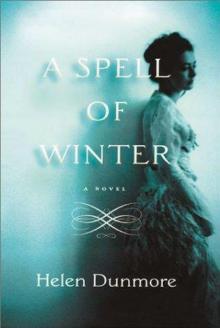 A Spell of Winter
A Spell of Winter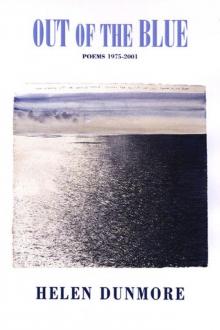 Out of the Blue
Out of the Blue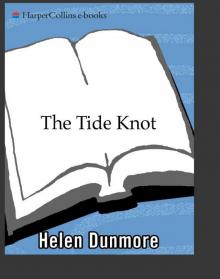 The Tide Knot
The Tide Knot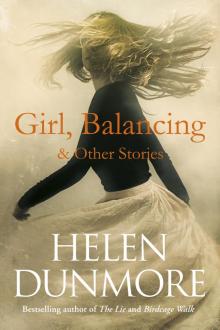 Girl, Balancing & Other Stories
Girl, Balancing & Other Stories Betrayal
Betrayal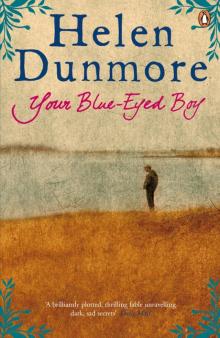 Your Blue-Eyed Boy
Your Blue-Eyed Boy